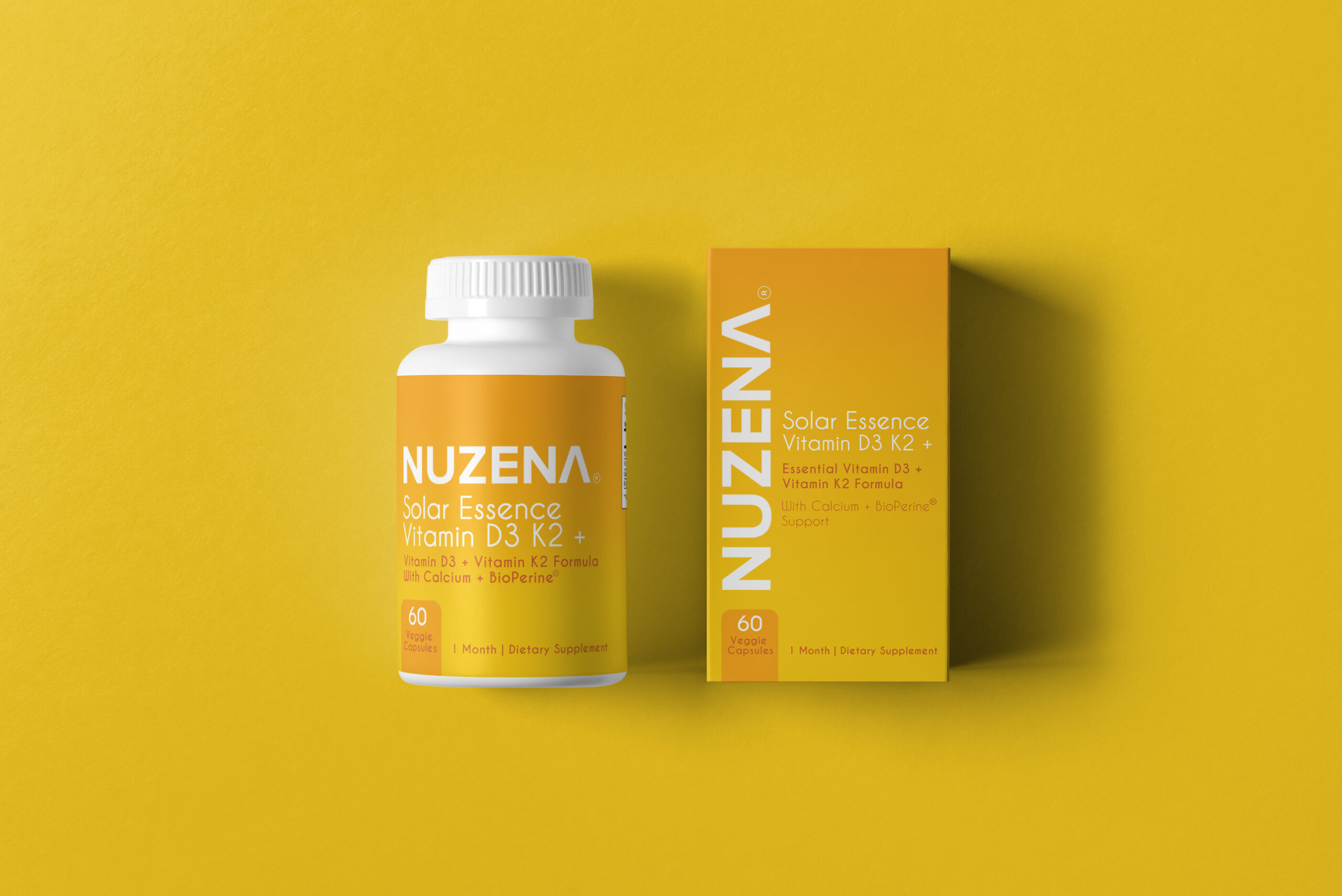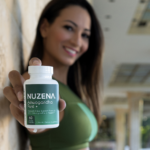
The Sun and Supplementing Vitamin D: Everything You Need to Know
The sun is a powerful force that sustains life on Earth. Its warmth and light provide energy for plants to grow and allow animals, including humans, to thrive. One crucial benefit of exposure to the sun is the synthesis of vitamin D, which is essential for the development and maintenance of healthy bones and teeth, among other functions. However, many people around the world suffer from vitamin D deficiency due to insufficient exposure to sunlight or other factors. In this blog post, we’ll explore the benefits of the sun and vitamin D, the risks of deficiency, and the best ways to supplement it.

Benefits of the Sun and Vitamin D
Exposure to sunlight triggers the synthesis of vitamin D in the skin, a process that begins when ultraviolet B (UVB) rays penetrate the epidermis, the outermost layer of the skin. Once in the skin, UVB rays are absorbed by a type of cholesterol called 7-dehydrocholesterol, which is converted into pre-vitamin D3. Pre-vitamin D3 then undergoes a series of chemical reactions in the liver and kidneys, ultimately producing the active form of vitamin D, known as calcitriol.
Vitamin D has several critical functions in the body. It promotes the absorption of calcium and phosphorus from the gut, which are necessary for building and maintaining strong bones and teeth. Vitamin D also helps regulate the immune system, supporting the body’s defenses against infection and disease. Additionally, recent research suggests that vitamin D may have a role in reducing the risk of certain types of cancer, cardiovascular disease, and autoimmune disorders. All the more reasons to supplement for vitamin D!

Risks of Vitamin D Deficiency
Vitamin D deficiency is a widespread problem that affects people of all ages, genders, and ethnicities. According to the World Health Organization, an estimated one billion people worldwide have inadequate levels of vitamin D in their blood. The risk of deficiency increases in populations with limited sun exposure, such as those who live in northern latitudes, work indoors, or cover their skin for cultural or religious reasons. Other factors that can contribute to vitamin D deficiency include obesity, certain medical conditions, and medications that interfere with vitamin D absorption or metabolism.
The consequences of vitamin D deficiency can be severe. In children, inadequate vitamin D can cause rickets, a condition that results in weak bones and stunted growth. In adults, vitamin D deficiency can lead to osteoporosis, a condition in which bones become weak and brittle and are more prone to fracture. Vitamin D deficiency has also been associated with an increased risk of certain types of cancer, diabetes, and heart disease. To avoid deficiency, it would be ideal to supplement for vitamin D.

Supplementing Vitamin D
For people who cannot get enough vitamin D from sunlight or diet alone, supplementing with vitamin D is a safe and effective way to ensure adequate levels in the body. Vitamin D supplements are available in two forms: vitamin D2 (ergocalciferol) and vitamin D3 (cholecalciferol). Vitamin D3 is the preferred form as it is the most biologically active and better absorbed by the body.
The recommended daily intake of vitamin D varies depending on age, sex, and other factors. In the United States, the recommended daily intake of vitamin D for most adults is 600-800 IU (international units) per day. However, some experts suggest that higher doses may be necessary to achieve optimal levels, especially in people with certain medical conditions or who are at higher risk of deficiency. Blood tests can measure vitamin D levels in the body and help determine the appropriate dosage of supplements.
It’s important to note that excessive intake of vitamin D can be harmful, leading to a condition known as vitamin D toxicity. Symptoms of vitamin D toxicity include nausea, vomiting, weakness, and kidney damage. The upper limit for daily vitamin D intake for adults is 4,000 IU per day, but some organizations suggest that even higher doses may be safe for short periods under medical supervision.
In addition to supplements, vitamin D can also be obtained from certain foods, including fatty fish, egg yolks, and fortified dairy products. However, it can be challenging to get enough vitamin D from diet alone, especially for those who follow a vegan or vegetarian diet.
For more information on the benefits of Vitamin D, click here!

The Bottom Line
The sun is a powerful source of vitamin D, which is essential for maintaining strong bones, supporting the immune system, and reducing the risk of chronic diseases. However, many people around the world suffer from vitamin D deficiency due to insufficient sun exposure or other factors. Supplementing with vitamin D can help ensure adequate levels in the body, but it’s important to follow recommended dosages and seek medical advice if necessary. Additionally, a balanced diet that includes vitamin D-rich foods can help support overall health and well-being.

SUMMARY
In summary, while the sun is an essential source of vitamin D, it’s important to balance the benefits of sunlight exposure with the risks of skin damage and skin cancer. Supplementing with vitamin D can be a safe and effective way to ensure adequate levels in the body, but it’s important to seek medical advice and follow recommended dosages. By taking a holistic approach to health and wellness, including diet, exercise, and sun safety, we can all support our bodies and minds to thrive.















